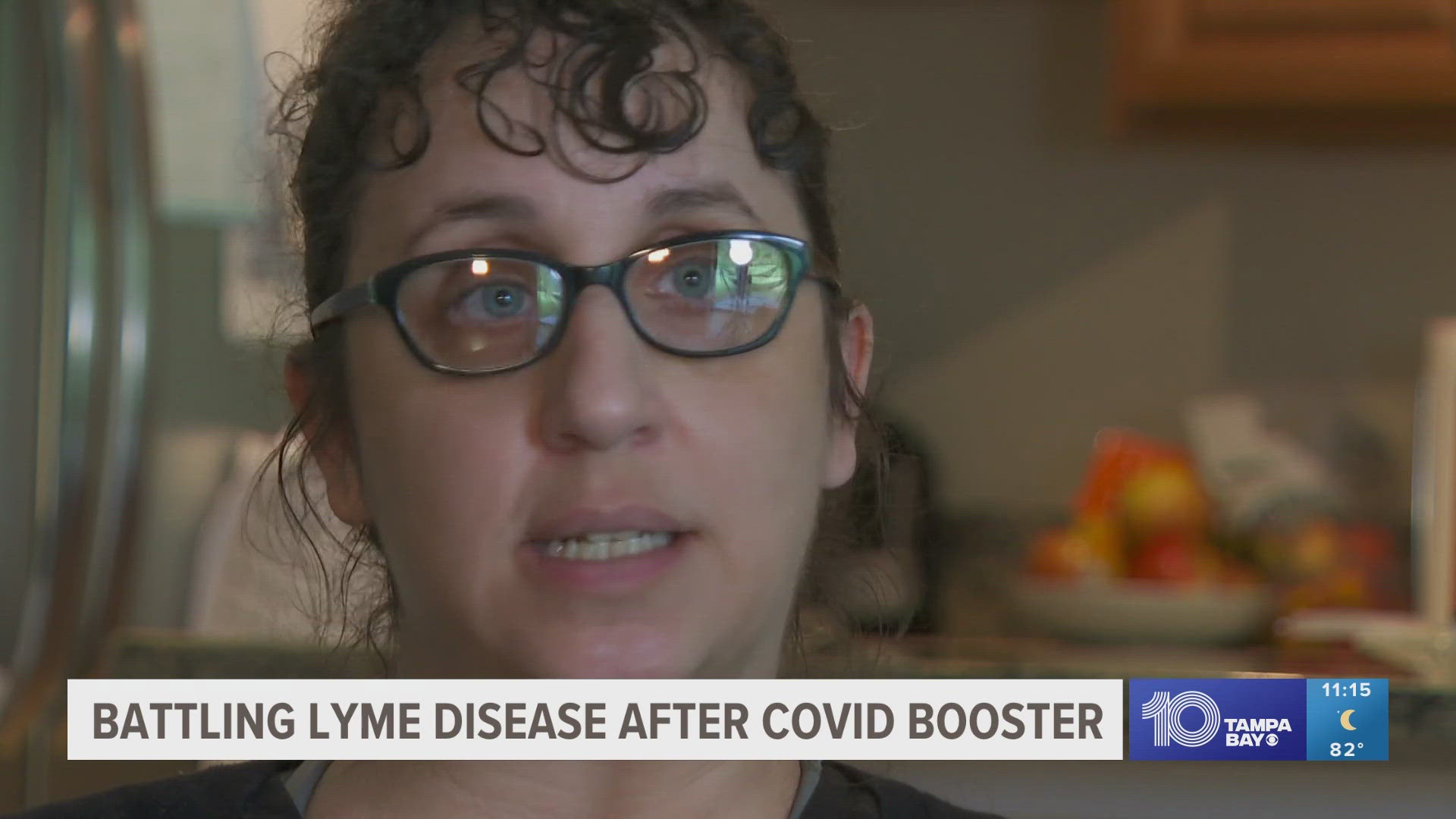TAMPA, Fla. — Are you or someone you love having thoughts of suicide? There is help, and you are not alone.
Below are some resources and some warning signs to be aware of.
Resources
"The hotline that we really encourage people to call locally and across the country is the national suicide prevention hotline," Ken Gibson with the Crisis Center of Tampa Bay told 10News.
The National Suicide Prevention Lifeline is available 24/7 and can be reached at 1-800-273-TALK (8255).
In the Tampa Bay area, 2-1-1 will also connect you to the Crisis Center.
"If someone is struggling with thoughts of suicide or having an emotional crisis, they can call the hotline or 2-1-1, Gibson said. "Both are available as gateways for someone going through a life challenge, including behavioral health and can connect them to different resources available in their community."
Gibson says 2-1-1 has answered a variety of calls, including people having developmental concerns with their children, generally struggling, or having an emotional crisis.
"The call is 100 percent confidential and can connect people having thoughts of suicide to the resources and help they need," Gibson added.
Gibson says the national suicide prevention lifeline can be used if you're concerned about someone else who may be having thoughts of suicide, including a family member or friend.
He wants to stress the confidentiality and privacy of the hotline calls and encourages people who are struggling to call themselves if they're able to. The number will connect them to community resources available to each specific issue or concern they are dealing with.
"The hotline provides immediate and emotional support by connecting them to emotional support resources that are free or scaled based on income," Gibson said.
The crisis center recommends a specific resource for veterans dealing with PTSD or struggling with thoughts of suicide, which is through the Florida Veterans Support Line at 1 - 844 - MYFLVET (693-5838).
The support hotline provides veterans with the ability to talk to other veterans. Some of the resources available are provided through Veterans Affairs, and some of the resources are independent of the VA. The crisis center says that although the hotline is meant for veterans, it can also help active military members as well.
The Crisis Center also recommends people interested in learning more about resources and ways to help to visit the suicidepreventionlifeline.org website.
"You can learn about the do's and don'ts when talking to someone having thoughts of suicide or someone who is struggling," Gibson added.
Family members and loved ones are, of course, encouraged to intervene and connect people who are struggling to resources that can help.
The crisis center also encourages people who may not feel comfortable reaching out to the hotlines to talk to a doctor or trusted source to get the help they need.
"The person struggling is encouraged to seek advice and shouldn't be afraid to seek out resources and get help," Gibson said.
Some warning signs:
"There's no 'typical' suicide victim - but there may be some warning signs that some people may display," Gibson said.
He says there is no check-mark or list of factors to look for and that some individuals don't show signs of struggling. Here are some possible warning signs to look for, however:
- Prior suicide attempts
- Someone communicating thoughts of suicide, which you should always take seriously
- Change in behavior, or not doing pleasurable activities anymore or as much
- Someone giving away important, valuable or prized possessions
- Withdrawing or isolating from friends or family
- Risk-taking behavior, such as speeding or drunk driving
- Abuse of substances. It can increase the risk of someone already having thoughts of suicide since substances may reduce inhibitions. Substances include alcohol or other drugs and medications. The substances might increase the risk of them actually acting on thoughts, the crisis center says
- Situations/life circumstances that could increase risky thoughts or behavior, including the loss of a significant other, the loss of status/job/role, or poor health or loss of health
- Emotional trauma in their life could be a risk factor, including PTSD, anxiety or depression, bipolar disorder, or various other mental health issues. There are behavioral health resources available which can be as broad as physical health concerns.
"Just like we encourage people to seek out help for a typical medical condition, where most people don't have a problem asking for help, people should feel as free seeking out help when they're struggling emotionally," Gibson added.
The crisis center recommends people who are interested in learning more information, getting involved, or who are interested in donating to go to the crisis center website.



